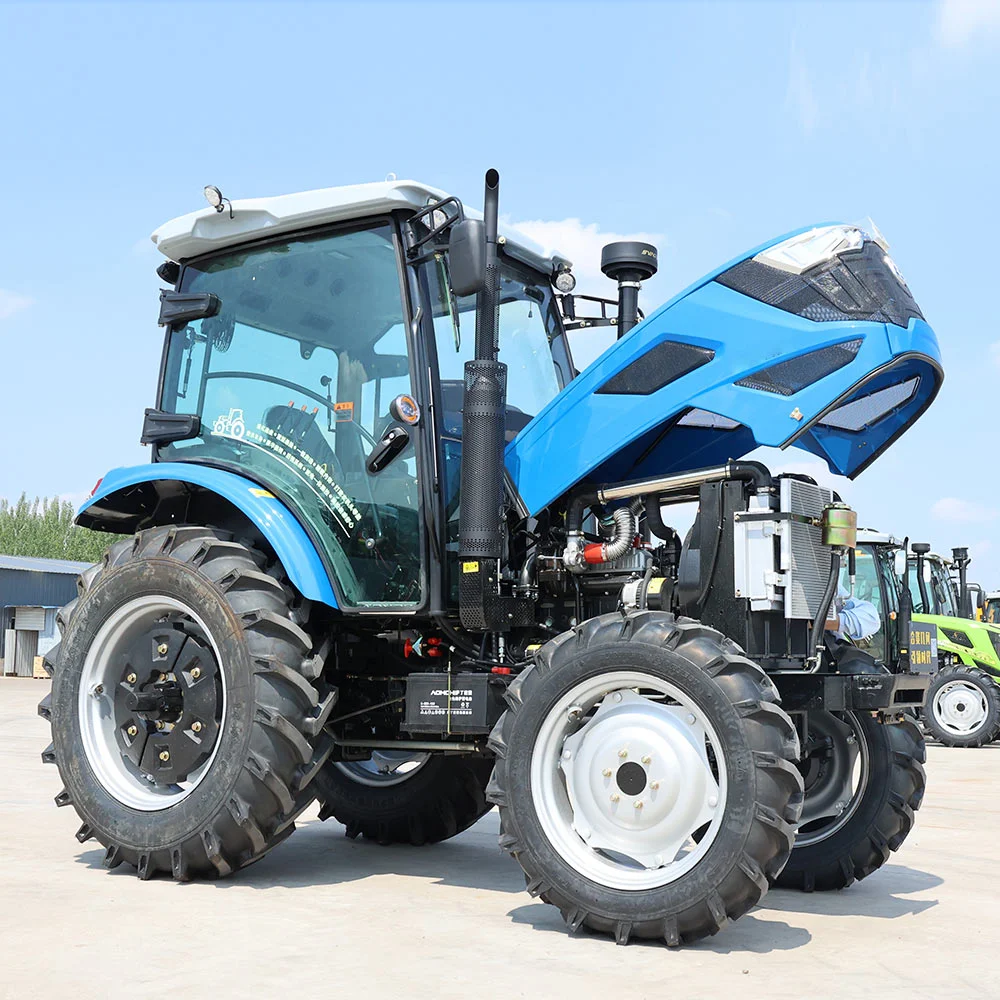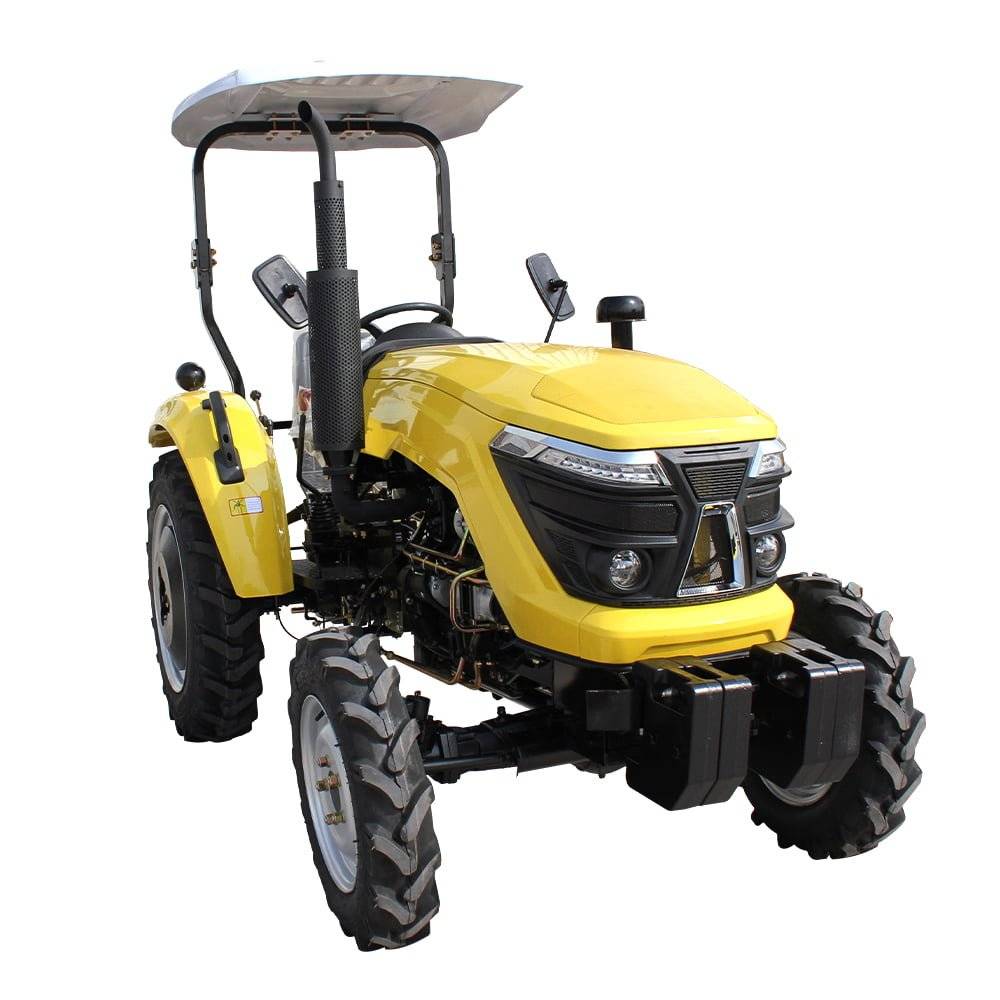Introdução
When it comes to purchasing a tractor, there are numerous factors to consider in order to make an informed decision. Whether you are a farmer, landscaper, or property owner, buy tractor is a significant investment that requires careful planning and research. In this comprehensive guide, we will explore everything you need to know about buying a tractor, from understanding your specific needs to evaluating different types and models available in the market.
Compreendendo suas necessidades

Before delving into the process of buying a tractor, it is crucial to assess your specific requirements. Whether you need a tractor for agricultural purposes, landscaping, construction, or other tasks, understanding your needs will help you narrow down the options and make an informed decision. Consider factors such as the size of your property, the type of terrain you will be working on, the implements and attachments you will need, as well as any specific features or capabilities that are essential for your intended use.
Researching Different Types of Tractors
Tractors come in various types and sizes, each designed for specific tasks and applications. From compact utility tractors to row-crop tractors, and from specialty tractors to articulated 4WD tractors, the market offers a wide range of options to choose from. Understanding the differences between these types of tractors, as well as their capabilities and limitations, is essential in finding the right fit for your needs. In this section, we will delve into the various types of tractors available, highlighting their features, advantages, and ideal use cases.
here’s a simple table outlining different types of tractors:
| Tipo de trator | Descrição |
|---|---|
| Trator utilitário | Versatile tractors designed for general-purpose tasks such as mowing, tilling, and light hauling. |
| Trator de cultivo em linha | Specialized tractors with narrow wheelbases and adjustable tread widths for precision row cropping. |
| Trator de jardim | Compact tractors primarily used for landscaping and lawn maintenance in residential or small-scale settings. |
| Sub-compact Tractor | Smaller tractors suitable for light-duty tasks in tight spaces, often used in landscaping and hobby farming. |
| Trator compacto | Versatile tractors larger than sub-compact models, used for a wide range of tasks in smaller agricultural operations. |
| Trator Industrial | Heavy-duty tractors designed for specialized tasks such as material handling, construction, and industrial applications. |
| Specialty Tractor | Tractors designed for specific applications such as orchard, vineyard, or forestry work, with specialized features and configurations. |
| High Crop Tractor | Tractors with increased ground clearance for working in tall crops such as cotton or sugarcane. |
| Track Tractor | Tractors equipped with tracks instead of wheels for improved traction and reduced soil compaction, suitable for challenging terrain. |
| Articulated Tractor | Tractors with a jointed frame allowing for greater maneuverability and stability, commonly used in large-scale farming operations. |
Evaluating Key Features and Specifications
When buying a tractor, it is important to pay close attention to its key features and specifications. Engine power, transmission options, hydraulic capabilities, lift capacity, and maneuverability are just a few of the essential factors to consider. Additionally, the availability of attachments and implements, as well as compatibility with third-party accessories, can significantly impact the versatility and functionality of the tractor. We will provide a detailed overview of these key features and specifications, helping you make an informed comparison between different models and brands.
Comparing Different Brands and Models

The market is flooded with tractor brands and models, each claiming to offer the best performance and value. However, not all tractors are created equal, and it is crucial to conduct a thorough comparison of different brands and models before making a purchase. Factors such as reliability, after-sales support, warranty coverage, and overall reputation should be taken into consideration. In this section, we will present a comparative analysis of popular tractor brands and models, highlighting their strengths, weaknesses, and value propositions.
Fazendo a compra
After carefully assessing your needs, researching different types of tratores, evaluating key features and specifications, and comparing different brands and models, you are now ready to make the purchase. Whether you choose to buy from a dealership, a private seller, or through an online marketplace, there are important considerations to keep in mind. Negotiating the price, inspecting the tractor’s condition, understanding the terms of sale, and arranging delivery or pickup are crucial steps in the purchasing process. We will provide a detailed guide on how to navigate these steps with confidence and ensure a smooth transaction.
Conclusion: Buy Tractor
In conclusion, buying a tractor is a significant decision that requires careful consideration and research. By understanding your specific needs, researching different types of tractors, evaluating key features and specifications, comparing different brands and models, and making an informed purchase, you can ensure that you find the right tractor for your needs. Whether you are a seasoned farmer or a first-time buyer, this ultimate guide has equipped you with the knowledge and insights needed to make a confident and informed decision.
Perguntas frequentes
Q: What are the essential factors to consider when buying a tractor?
A: When buying a tractor, it is important to consider factors such as your specific needs, the type of terrain you will be working on, the implements and attachments you will need, as well as key features and specifications including engine power, transmission options, hydraulic capabilities, lift capacity, and compatibility with accessories.
Q: How do I choose the right type of tractor for my needs?
A: Choosing the right type of tractor depends on your intended use, the size of your property, and the tasks you need to accomplish. Compact utility tractors are ideal for smaller properties and versatile tasks, while row-crop tractors are designed for larger agricultural operations. Specialty tractors cater to specific tasks such as orchard work or vineyard management, while articulated 4WD tractors offer superior power and traction for demanding applications.
Q: What should I look for when comparing different tractor brands and models?
A: When comparing different tractor brands and models, it is important to consider factors such as reliability, after-sales support, warranty coverage, and overall reputation. Additionally, assessing the availability of parts and service in your area, as well as the compatibility with third-party attachments and implements, can help you make an informed decision.
Q: Where can I buy a tractor and what should I consider during the purchasing process?
A: Tractors can be purchased from dealerships, private sellers, or through online marketplaces. When making a purchase, it is important to negotiate the price, inspect the tractor’s condition, understand the terms of sale, and arrange for delivery or pickup. Additionally, ensuring proper documentation and understanding any warranty or return policies is essential for a smooth transaction.






-1.png)